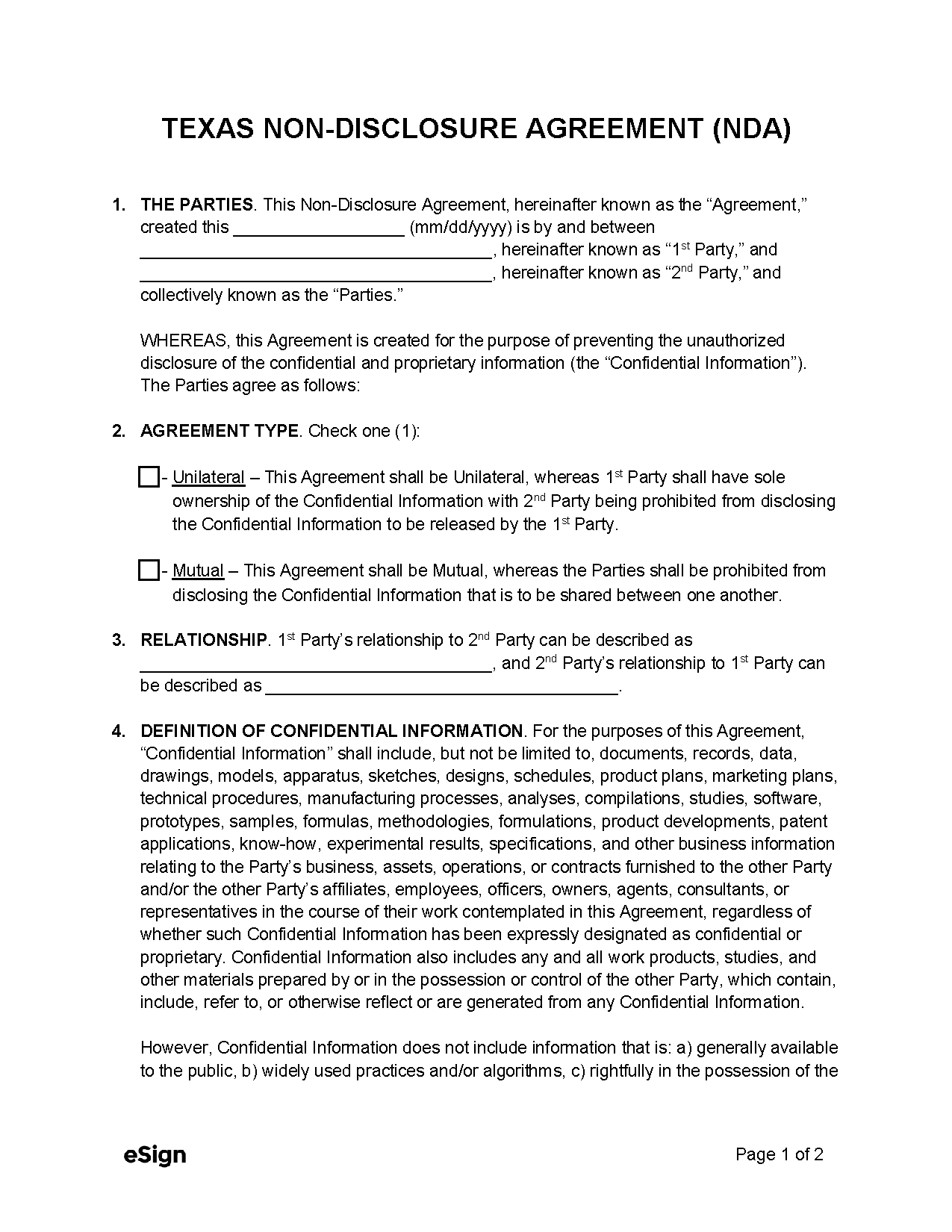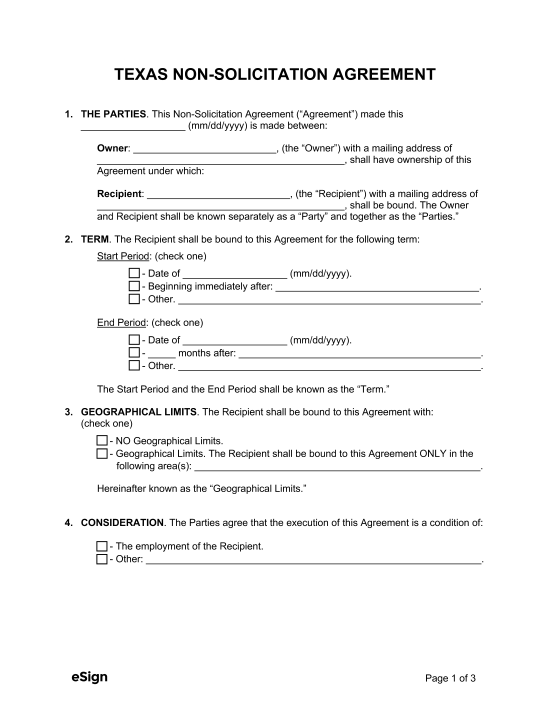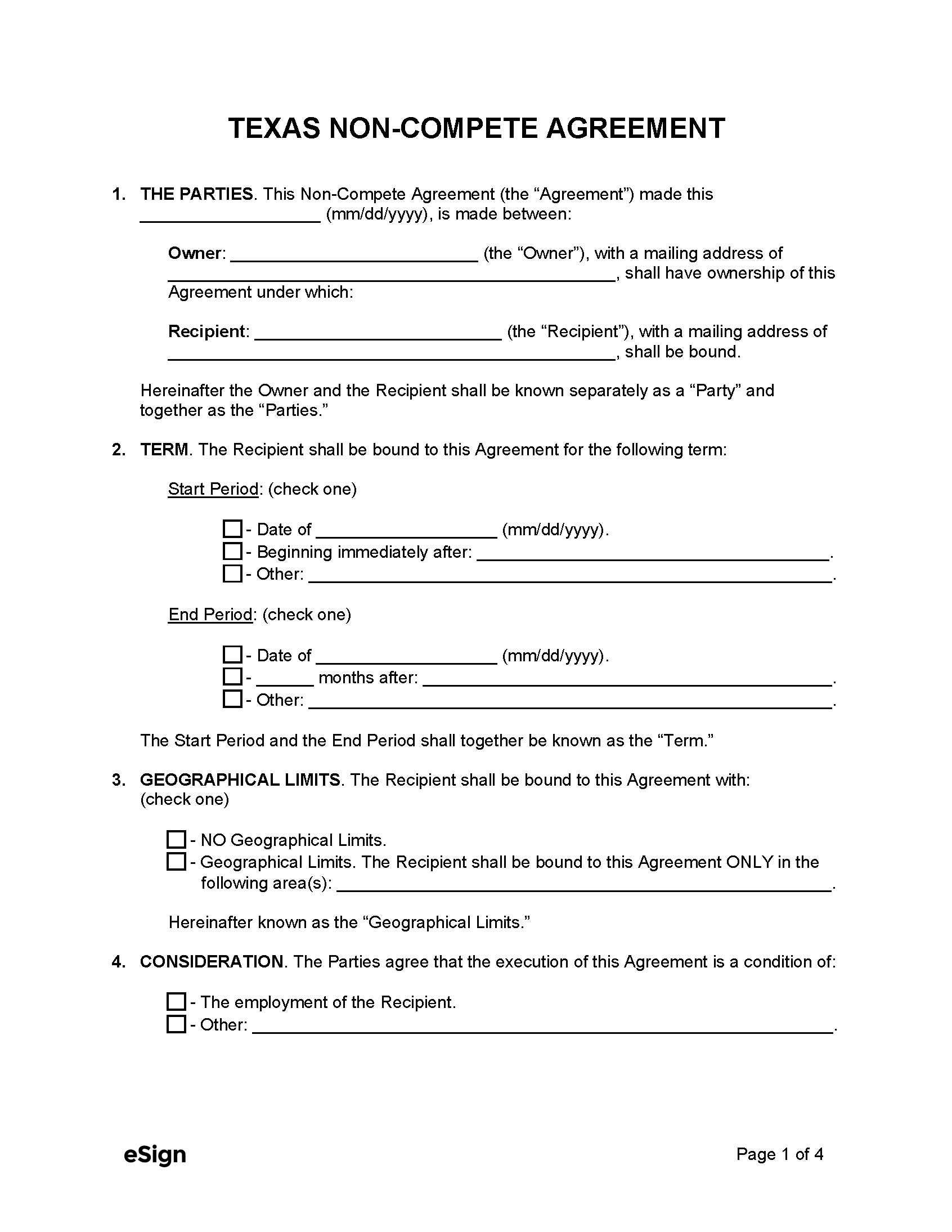Non-compete agreements have limitations as it relates to duration, geographical scope, and prohibited activities; whether the agreement is enforceable largely depends on the reasonableness of these limitations.
Contents |
Enforceability in Texas
An agreement requiring an employee not to enter into competition with an employer is legally enforceable in Texas. Non-competes are governed by the Texas Business and Commerce Code, which sets forth the criteria for enforceability and the procedures/legal remedies for breaches of contract.
When it IS Enforceable
- Non-competes in general. Texas courts will enforce a non-compete agreement if the covenants not to compete comply with the following statutory requirements:[1]
- The covenants are part of or ancillary to an otherwise enforceable agreement (e.g., a confidentiality agreement) at the time that agreement was made. (Note: The employee must receive consideration in the otherwise enforceable agreement.[2])
- The covenants are reasonable in length, geographical coverage, and in the extent of prohibited activities.
- The covenants afford no more security than what is needed to protect the employer’s goodwill, trade secrets, confidential information, or other business interest.
- Non-compete for physicians. Non-compete agreements are enforceable upon licensed Texas physicians but must comply with specific statutory regulations.[3]
When it’s NOT Enforceable
If the covenants not to compete are excessive or don’t otherwise satisfy the above requirements for enforceability, it is unlikely that the courts will enforce the agreement.
- Lawyers. An agreement that prohibits a lawyer from practicing law after their employment/contract has ended is unenforceable, unless the agreement pertains to retirement benefits. An agreement is also unenforceable if it restricts a lawyer’s right to practice as part of a lawsuit/client controversy, unless the settlement pertains to disciplinary actions against the lawyer.[4]
Maximum Time Period
The duration of the non-compete agreement must be reasonable and not impose a greater time restraint than that which is required to fairly protect the employer’s business interest. Periods of two (2) to five (5) years have been upheld in Texas.[5]
Geographical Area
Geographical restrictions imposed on the employee must be reasonable under the circumstances. According to Texas case law, the geographical area in which the employee worked while employed is a reasonable restriction.[6] The courts deemed a 10-mile radius reasonable with regard to a small newspaper business.[7]
Consideration
Covenants not to compete must be tied to a separate enforceable agreement that provides consideration to the employee. The consideration cannot be illusory, meaning the employee must actually receive the thing of value promised by the employer. Continued at-will employment on its own does not qualify as sufficient consideration.[8]
Texas courts have ruled that sufficient consideration can be achieved with an agreement promising access to confidential information,[2] through the provision of specialized training,[9] and by awarding stock options,[10] provided that the employee actually receives the promised consideration.
Sources
- § 15.50(a)
- Alex v. Johnson, 209 S.W.3d 644 (Tex. 2006)
- § 15.50(b)
- Rule 5.06
- Prop Tax Assoc v. Staffeldt, 800 S.W.2d 349, 350 (Tex. App. 1990)
- Evan’s World Travel, Inc. v. Adams, 978 S.W.2d 225, 232-233 (Tex. App. 1998)
- Webb v. Hartman Newspapers, 793 S.W.2d 302, 305 (Tex. App. 1990)
- J.M. Davidson Inc. v. Webster, 128 S.W.3d 223, 228 (Tex. 2003)
- Neurodiagnostic Tex, L.L.C. v. Pierce, 506 S.W.3d 153, 161 (Tex. App.—Tyler 2016, no pet.)
- Marsh USA Inc. v. Cook, 354 S.W.3d 764, 777-78 (Tex. 2011)
- § 15.51(c)
Related Forms (2)

Download: PDF, Word (.docx), OpenDocument

Download: PDF, Word (.docx), OpenDocument
